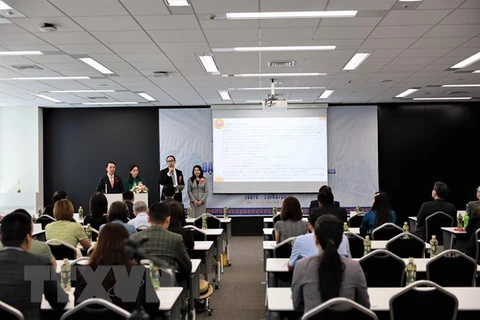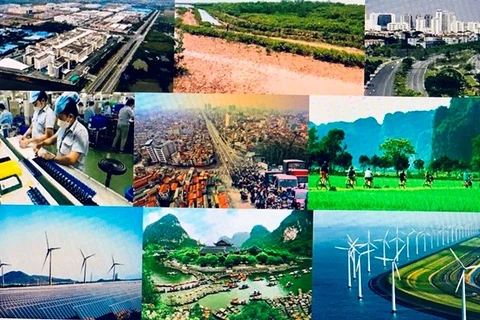Hanoi (VNA) – The Japan International Cooperation Agency (JICA) in Vietnam is stepping up activities and projects as part of its agricultural cooperation programmes with the Vietnam Agricultural Extension, JICA Deputy Chief Representative Kubo Yoshitomo has said.
It is expected to help localities increase productivity and the efficiency of the local agricultural supply chain, strengthen linkage among various economic development models, especially in the private sector while improving the livelihoods of locals.
Kubo Yoshitomo said there is also a collaboration with the Ministry of Natural Resources and Environment to launch activities that support carbon emission reduction in Vietnam, with a focus on water resource management and application of modern technologies to mitigate the impact of climate change and natural disasters.
He expected that these plans will bring about new development opportunities, providing small and micro-sized enterprises with the motivation and confidence to continue their recovery process and propel the economy out of its current challenges.
As of August 2023, Japan has 5,168 active projects with a total registered investment of over 71 billion USD. Japan currently ranks third among 143 countries and territories investing in Vietnam./.

Vietnam, Japan cooperate in ocean waste management
Minister of Natural Resources and Environment Dang Quoc Khanh held a working session with Japanese Minister of Environment Nishimura Akihiro in Hanoi on August 25 regarding cooperation in environment protection and climate change response.






















